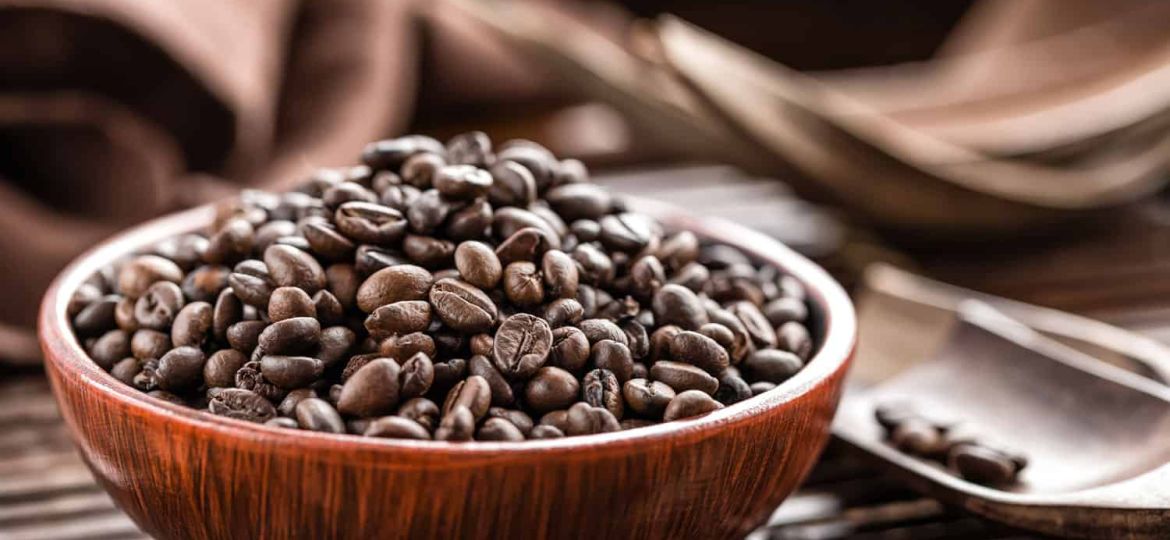
Mexican coffee beans hold a distinguished place in the global coffee market, renowned for their unique qualities that make them highly sought after for wholesale. Mexico’s diverse climate and geography contribute to producing coffee beans with a range of flavors and aromas, appealing to a wide spectrum of palates.
From the rich, volcanic soils of Chiapas to the mountainous terrains of Oaxaca, each region offers beans that tell a story of their origin. This variety, coupled with sustainable farming practices and a rich coffee cultivation history, positions Mexican coffee as a premium choice for businesses looking to enrich their offerings.
Key Takeaways
- History and Origin of Coffee Cultivation in Mexico: The cultivation of coffee in Mexico can be traced back to the 18th century, with significant growth observed after the introduction of coffee plants into Veracruz. Over the years, coffee cultivation spread to various regions, adapting to local climates and elevations, thus enriching the diversity of Mexican coffee.
- Main Coffee-Growing Regions and Their Characteristic Flavors: Mexico’s primary coffee-growing regions include Veracruz, Chiapas, Oaxaca, and Puebla, each known for its distinctive flavor profiles. Veracruz is famous for its nutty and chocolatey notes, while Chiapas offers a delicate taste with low acidity. Oaxaca’s beans are known for their light body and sweet, complex flavors, and Puebla offers a balanced and light-bodied coffee.
- Process of Sourcing, Quality Grading, and Wholesale Purchasing: Sourcing Mexican coffee involves direct trade with farmers or through cooperatives, emphasizing quality grading to ensure premium beans. Wholesale buyers prioritize beans with specific characteristics, such as no primary defects and minimal secondary defects, to guarantee optimal flavor.
- Benefits of Partnering with Mexican Coffee Farmers and Suppliers: Establishing partnerships with Mexican coffee farmers and suppliers offers businesses the advantage of accessing high-quality, specialty-grade beans. These relationships support the local economy and promote sustainable practices, ensuring a steady supply of unique coffee beans for the global market.
- Understanding the Logistics of Wholesale Coffee Bean Importation from Mexico: Importing Mexican coffee beans wholesale requires navigating logistics, including understanding import regulations, transportation, and customs procedures. Successful importation hinges on collaboration with experienced suppliers who can ensure the beans maintain their quality throughout the journey.
The History and Cultivation of Mexican Coffee Beans
The journey of coffee in Mexico began in the late 18th century, primarily in the state of Veracruz, marking the inception of what would become a rich and evolving coffee culture. This introduction set the stage for the widespread cultivation of coffee across various regions, each adapting to their unique climatic conditions and elevations.
Coffee cultivation flourished, particularly after the Mexican Revolution, as reforms and land distributions encouraged small-scale farming and diversified production methods. Throughout the 20th century, despite economic and political challenges, Mexico continued to grow as a significant coffee producer, with a focus on sustainable and fair-trade practices that supported its rural communities.
Mexican Coffee Bean Varieties and Regions
Veracruz
Situated along the Gulf of Mexico, Veracruz is one of the oldest coffee-producing regions in the country. It is renowned for its Altura Coatepec beans, grown in the high-altitude areas, which produce a coffee noted for its nutty, bright, and chocolatey flavors. The region’s coffee has a distinct profile due to the combination of altitude, climate, and volcanic soil, offering a rich and complex cup.
Chiapas
Bordering Guatemala, Chiapas is Mexico’s most prolific coffee-producing region, known for its nutrient-dense volcanic soil and tropical climate. The high-altitude conditions slow the maturation of the coffee cherries, resulting in beans that are delicate, with low acidity and a medium body. Chiapas coffee is often described as having a smooth taste with hints of chocolate and nutty undertones.
Oaxaca
The rugged, mountainous terrains of Oaxaca are home to small, family-run farms that produce coffee with distinct light body and low acidity. The region’s coffee is celebrated for its sweet, nutrient-rich flavor profile, attributed to the high elevations at which the beans are grown. Oaxaca’s coffees are often complex, with a sweet aroma and a flavor profile that includes floral and fruity notes.
Puebla
Despite being one of the smaller coffee-producing regions, Puebla’s contribution to Mexico’s coffee culture is significant. The coffee grown here, at elevations of around 600 meters, is known for its light-bodied, balanced flavor profile. The unique climatic and geographical conditions of Puebla contribute to producing a coffee that is both aromatic and flavorful, with a clean finish.
These regions collectively contribute to the rich tapestry of Mexican coffee, each offering unique flavors that are a testament to Mexico’s diverse landscapes and coffee cultivation heritage. The variety of beans produced across these regions provides a broad spectrum of tastes and aromas, catering to a wide range of preferences and highlighting the importance of Mexican coffee in the global market.
Sourcing and Quality Grading
Sourcing Mexican coffee beans involves direct trade with producers and cooperatives, ensuring transparency and fairness in the coffee supply chain. Direct trade allows buyers to establish a closer relationship with the growers, ensuring high-quality beans and supporting local communities.
Cooperatives, on the other hand, pool resources from small farmers, providing them with a platform to sell their beans at better prices and under fair conditions. This method of sourcing not only benefits the producers but also allows wholesale buyers to access a diverse range of coffee beans with distinct flavor profiles.
Quality grading plays a crucial role in the wholesale coffee market. Specialty grade coffee beans from Mexico are highly sought after, requiring that the beans have no primary defects and minimal secondary defects. This stringent grading ensures the coffee’s optimal flavor and aroma, making quality grading an essential process for wholesale buyers aiming to offer premium coffee products. The focus on quality grading supports the reputation of Mexican coffee in the global market, emphasizing its specialty status.
The Business of Wholesale Mexican Coffee Beans
The economic aspects of buying Mexican coffee beans wholesale include considerations of pricing, minimum order quantities, and the benefits of direct purchasing from suppliers. Competitive pricing, influenced by factors such as quality, region, and market demand, plays a significant role in the wholesale coffee bean trade. Buyers must navigate these variables to secure the best prices while ensuring the quality of the beans.
Minimum order quantities can vary, allowing businesses of different sizes to participate in the coffee trade. Direct purchasing from Mexican suppliers offers several advantages, including access to high-quality, specialty-grade beans and the potential for more favorable pricing due to the elimination of intermediaries. Additionally, direct relationships with suppliers can lead to more sustainable and ethical trade practices, benefiting both parties in the long term.
Sustainability and Ethical Considerations
Sustainability and ethical practices are increasingly important in the Mexican coffee industry. Initiatives aimed at supporting small farmers and promoting environmentally friendly cultivation methods are essential for the long-term viability of the coffee sector. These initiatives include implementing organic farming practices, water conservation methods, and shade-grown coffee production, which helps preserve biodiversity.
Ethical considerations also involve fair labor practices and equitable compensation for coffee farmers, ensuring they receive a fair share of the profits. Such practices not only improve the lives of the farmers and their communities but also enhance the overall quality of the coffee produced.
By prioritizing sustainability and ethics, the Mexican coffee industry can ensure its continued growth and reputation in the global market, while also contributing positively to environmental conservation and social development.
FAQs
How can I find reputable Mexican coffee bean suppliers? To find reputable suppliers, look for businesses with transparent sourcing practices, positive reviews, and a strong presence in the industry. Attending coffee trade shows or consulting with industry associations can also connect buyers with reliable suppliers.
Why are certifications important when purchasing Mexican coffee beans wholesale? Certifications like Fair Trade, Organic, or Rainforest Alliance signify adherence to certain environmental and social standards. They provide assurance regarding the sustainable and ethical practices involved in the coffee’s production, appealing to consumers seeking responsible options.
How can I ensure the quality and authenticity of the beans? Quality and authenticity can be ensured by requesting samples, verifying certifications, and possibly visiting the farms or processing facilities. Engaging in direct trade practices and building relationships with the producers can also increase transparency and trust.
Final Thoughts
Mexican coffee beans offer a unique value to the wholesale market, characterized by diverse flavors, high quality, and sustainable sourcing. Businesses are encouraged to explore partnerships with Mexican producers, tapping into the rich coffee culture and heritage to source high-quality, sustainable coffee.
Engaging with reputable suppliers and prioritizing ethical practices not only supports the industry’s growth but also contributes to a more responsible and sustainable global coffee market.









